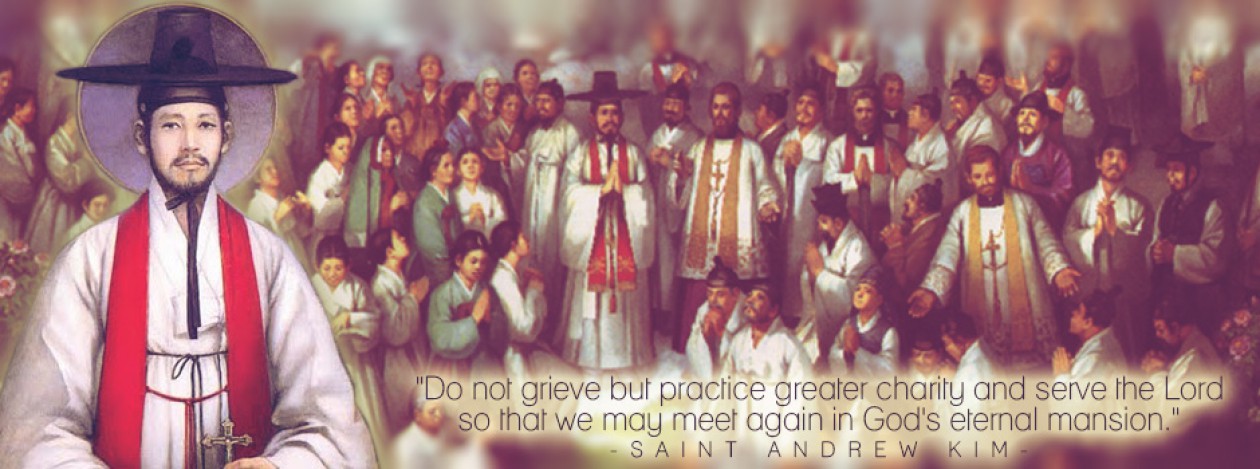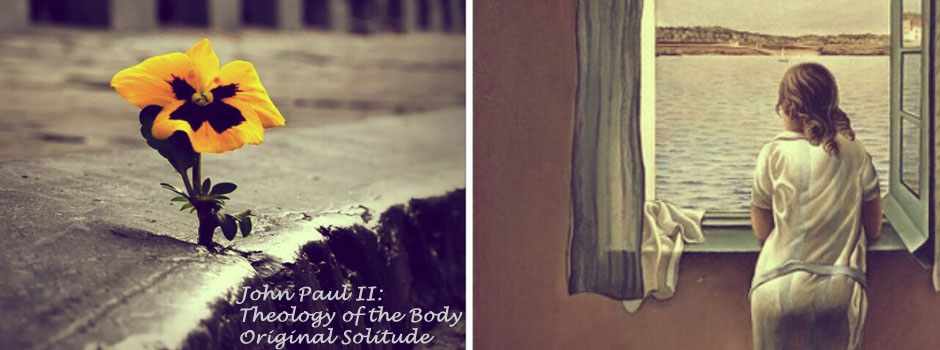Have you ever felt alone? Despite the love from family and friends, or because their love is lacking, you feel as if no one really gets you… they don’t know what goes on inside. There is an internal dialogue that no one else hears. You might even be the kind of person who wants to avoid having that internal dialogue because it’s too lonely, too painful. Or quite the opposite, you talk so much to yourself that you’re afraid you might be crazy.
John Paul II (JPII) speaks about this phenomenon in his Theology of the Body. He looks at Scripture and develops a theological concept called Original Solitude that describes this condition of “aloneness.” He teaches that the recognition and acceptance of your Original Solitude is a stepping stone to your true identity and purpose in life.

To begin, JPII first clarifies that both men and women experience this Original Solitude. Specifically, the meaning of the word “man” in Gen 2:18 points to both men and women, “It is not good that the man should be alone; I want to make him a help similar to himself.” The Hebrew text constantly calls the first man as ha’adam and the term for “male” is first introduced only when contrasting with “female” (male = ‘îš; female = ‘îššah). This distinction is important because many exegetes interpret that males need females. God cannot reveal our Original Solitude in Scripture if we fail to note this in the ancient texts.
Since “man” refers to both male and female in Gen 2:18, “we are dealing with the solitude of ‘man’ (male and female) and not only with the solitude of the man-male, caused by the absence of the woman” (TOB 5:2).
JPII then explains that Gen 2:19-20, in addition to being a preparation for the creation of woman, also has significance on its own. In the process of naming living creatures that God shows him, man discovers that he is a unique person, unlike anything else in God’s creation:
…whatever the man called every living creature, that was to be its name. In this way, the man gave names to all cattle, and to the birds of the air, and to every animal of the field; but the man did not find a help similar to himself. (Gen 2:19-20)
Original man (both male and female) could have reached the conclusion that he is substantially similar to other living beings. But, he doesn’t. He reached the conviction that he was alone… unique. There is something unique about being a human person! I wrote about this when I was reading JPII’s “Love and Responsibility.” Humans are unique because of the interior life that we can develop. This interior life is what separates us from other living creatures and what seemingly separates us from other persons. (I say “seemingly” because JPII develops another concept he calls Original Unity that resolves that apparent separation.)
Every person can develop an interior life that is so deep, so profound, so expansive… that it is as if each person is a little universe. Great works of art are a testament to this reality (i.e. books, movies, music, etc.) Tolkien and Lewis created universes from their minds that were so real it allowed other people to immerse themselves into it. Movies and music can similarly inspire our mind, move our interior life into new frontiers. If we bother to develop our interior life, we realize the potential is infinite. The awe from this infinity may lead you to encounter God. The infinity of your interior life has a parallel to the infinity that is in God.
So, Original Solitude reveals this truth: each person is of infinite value because he or she has “a unique, exclusive, and unrepeatable relationship with God himself (TOB 6:2)” as experienced by his or her interior life. It reveals another truth: each person is capable of self-knowledge and self-determination (cf. TOB 6:1). Another truth that leads to a future discussion on Original Unity: male and female are two “incarnations” of the same “image of God” just as the Father and the Son are two Incarnations of the same God.
Related articles
- Meaning of Man’s Original Solitude (ewtn.com)
- Solitude (myricketytypewriter.wordpress.com)
- The Original Solitude (hillarydalie.wordpress.com)



JPII’s Original Solitude reveals that men and women feel aloneness not because they need each other, but because they need to complete the image of God. A man and a woman together plus the spirit of procreation completes the Trinitarian image of God, who has the Power of Creation.
LikeLike
My wife received an email reflection from a woman’s group back in Shanghai that encourages a person to develop his or her interior life. This reflection goes well with my thoughts on JPII’s Original Solitude:
LikeLike
Christopher West answers the question, “Theology is the study of God; how can our bodies be a study of God?” regarding JPII’s Theology of the Body: http://www.christopherwest.com/what-makes-the-body-theological/
LikeLike
Mary Beth Bonacci talks about Original Solitude from a single woman’s perspective in this old Catholic Exchange article: http://catholicexchange.com/alone/
LikeLike
A teacher of TOB reflects on Original Solitude back in 2010: http://acalltoloverevolution.blogspot.kr/2010/03/original-solitude.html
Cool! I’m not the only one.
LikeLike
Dan Burke’s article on “The Devil’s War on Silence” is a great extension on Original Solitude:
http://www.ncregister.com/blog/dan-burke/the-devils-war-on-silence
LikeLike
Comedian Louis C.K. is known for his vulgar humor, but he hits Original Solitude right on the nail in this YouTube video clip on the Conan O’Brien late-night show:
LikeLike
Great explanation for why Louis C.K.’s criticism of the smartphone attracted so much attention. By Way of Beauty’s blog post draws connections to philosophy, Peter Kreeft, St. Augustine and more…
http://www.bywayofbeauty.com/2013/09/louis-ck-technology-and-philosophy-part.html
LikeLike